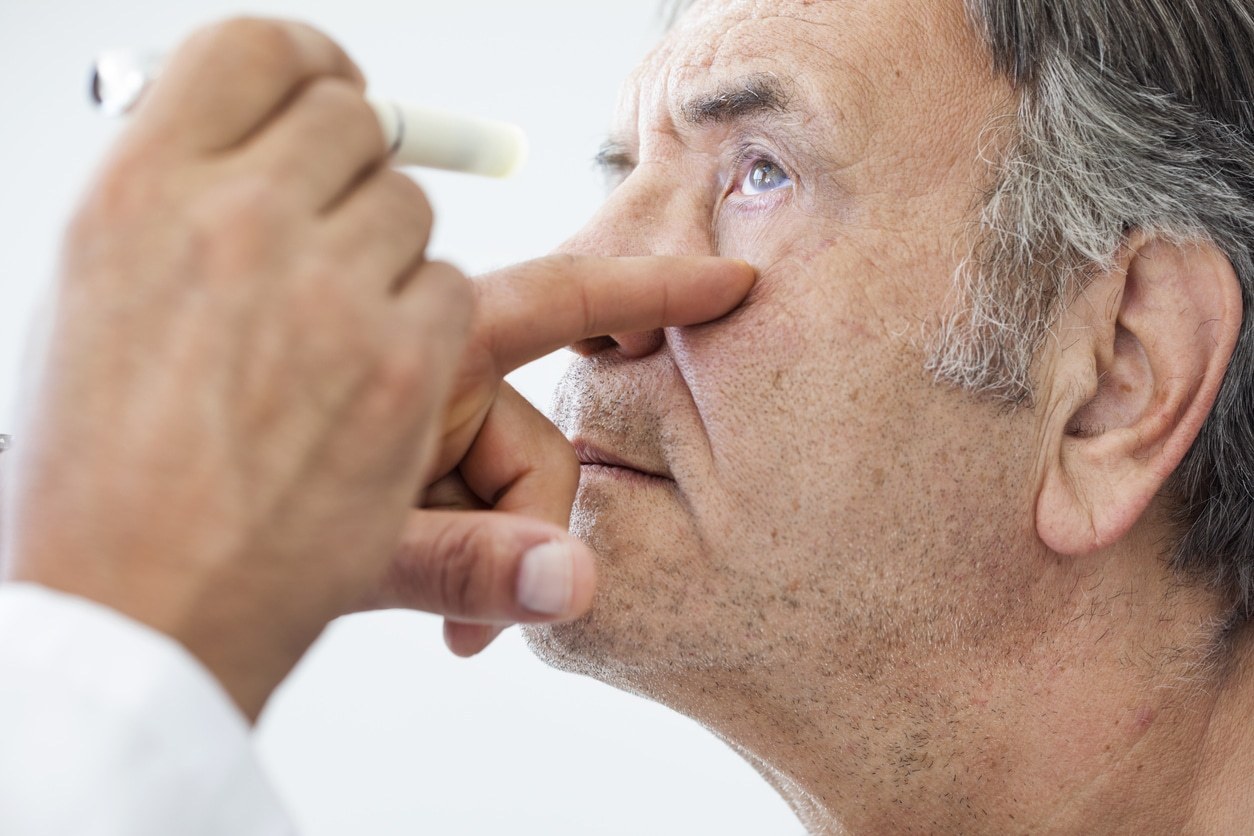Elmiron Lawsuit - IC and Painful Bladder Med Linked to Vision Loss, Eye Disease
The widely used bladder drug Elmiron may cause eye damage, a new study claims.
A report released last year suggested that the drug — known as pentosan polysulfate sodium and used by hundreds of thousands of people for decades — may be toxic to the retina, the light-sensing tissue at the back of the eye.
That led researchers to examine a database of 4.3 million patients at Kaiser Permanente in Northern California.
The three Kaiser Permanente ophthalmologists who conducted the study identified 140 patients who’d taken an average of 5,000 pills each over 15 years. Of those 140 patients, 91 agreed to an exam, and the researchers took detailed images of the back of their eyes.
Twenty-two of the 91 patients showed clear signs of Elmiron toxicity. The rate of toxicity rose with the amount of Elmiron taken, from 11% of those taking 500 to 1,000 grams to 42% of those taking 1,500 grams or more.
The findings showed that about one-quarter of patients who’d taken large amounts of Elmiron had clear signs of eye damage, and that damage caused by the drug could be mistaken for other retinal conditions, such as age-related macular degeneration or pattern dystrophy.
Elmiron is the only drug approved in the United States to treat interstitial cystitis, which causes chronic pain in the bladder and pelvis area. It’s estimated that more than 1 million people in the United States, mostly women, have the condition.
“It’s unfortunate. You have a patient with a chronic condition like interstitial cystitis, for which there is no cure and no effective treatment. They get put on these medications because it’s thought to have few side effects and few risks, and no one thinks about it again. And year after year, the number of pills they’re taking goes up and up,” study author Dr. Robin Vora said in an American Academy of Ophthalmology (AAO) news release.
It’s unclear how much Elmiron is too much, so patients who show no signs of toxicity should be screened for retinal damage at least once a year, Vora said.
Those who do have signs of eye damage should speak with their urologist or ob/gyn about discontinuing the medication, he advised.
If it’s identified early, the eye damage caused by Elmiron may be limited by stopping the medication, according to the researchers.
The research was to be presented Oct. 12 at the annual meeting of the AAO, in San Francisco. Findings presented at scientific meetings should be considered preliminary until published in a peer-reviewed journal.
Symptoms OF Elmiron-Related Retinal Maculopathy
POSSIBLE SYMPTOMS OF ELMIRON-RELATED RETINAL MACULOPATHY
- Vision distortion
- Blurred vision
- Difficulty adapting to dim lighting
- Difficulty readjusting after exposure to bright light
- Dark spots in center of vision
- Difficulty reading
- Muted, or less vivid, colors
- Straight lines appearing curved or squiggly

Elmiron and Retinal
"Elmiron use has been linked to a significantly higher risk of vision loss and vision damage"
Elmiron and Retinal
What many patients don’t realize is that taking Elmiron may increase their risk of other, life-changing medical conditions, such as retinal maculopathy, pigmentary maculopathy or macular retinopathy. Maculopathy is a general term used to describe any pathological condition affecting the macula, which is the functional center of the retina, the light, sensitive tissue that lines the inside of the eye. The macula is essential for everyday, accurate vision and is the part of the retina we use to see details, read and recognize a familiar face. Damage to the macula can cause serious eye disorders and may also lead to permanent blindness. From 1997 to 2019, the FDA received 100 reports of eye disorders occurring in patients taking Elmiron. Eight of the eye disorders were considered serious and 22 of the reports cited some form of maculopathy.
The form of maculopathy that has been linked to Elmiron treatment is identified as “pigmentary maculopathy of unknown etiology,” or a macular injury with no known cause. However, a growing body of evidence suggests that there is a known cause: Elmiron. In 2018, doctors from the Emory Eye Center in Atlanta, Georgia reported six cases between 2015 and 2017 where female patients between the ages of 38 and 68 experienced a new eye disease with no apparent cause. The disease was classified as retinal maculopathy, meaning the pigment cells within the retina changed color, which can result in significant vision problems. After an exhaustive review of their medical history, the doctors found that all six patients were taking Elmiron for interstitial cystitis. In 2019, the Emory Eye Center’s report was updated to include four additional patients who had taken Elmiron and experienced macular disease.
Did you or a loved one suffer vision problems or vision loss after using of the IC and Painful Bladder Symptom treatment Elmiron?
Find out if you qualify for compensation.
Find Out MoreConsumer Safety Watch offers safety advocate services and attorney referral services for patients throughout the United States including the states of Alabama, Alaska, Arizona, Arkansas, California, Colorado, Connecticut, Delaware, Florida, Georgia, Hawaii, Idaho, Illinois, Indiana, Iowa, Kansas, Kentucky, Louisiana, Maine, Maryland, Massachusetts, Michigan, Minnesota, Mississippi, Missouri, Montana, Nebraska, Nevada, New Hampshire, New Jersey, New Mexico, New York, North Carolina, North Dakota, Ohio, Oklahoma, Oregon, Pennsylvania, Rhode Island, South Carolina, South Dakota, Tennessee, Texas, Utah, Vermont, Virginia, Washington, West Virginia, Wisconsin and Wyoming.
Consumer Safety Watch offers consumer safety advocate services or can help you find an attorney throughout the United States including the following cities: Albuquerque, NM; Arlington, TX; Atlanta, GA; Austin, TX; Baltimore, MD; Boston, MA; Charlotte, NC; Chicago, IL; Cleveland, OH; Colorado Springs, CO; Columbus, OH; Dallas, TX; Denver, CO; Detroit, MI; Fresno, CA; Fort Worth, TX; Indianapolis, IN; Honolulu, HI; Houston, TX; Jacksonville, FL; Kansas City, KS; Kansas City, MO; Las Vegas, NV; Long Beach, CA; Los Angeles, CA; Louisville, KY; Memphis, TN; Mesa, AZ; Miami, FL; Miami, OH; Milwaukee, WI; Minneapolis, MN; Nashville, TN; New York City, NY; Oakland, CA; Oklahoma City, OK; Omaha, NE; Philadelphia, PA; Phoenix, AZ; Pittsburgh, PA; Portland, OR; Sacramento, CA; San Antonio, Tx; San Diego, CA; San Francisco, CA; San Jose, CA; Seattle, WA; St. Louis, MO; Tampa, FL; Tucson, AZ; Tulsa, Virginia Beach, VA; Washington, DC; Wichita, KS.
This website is not affiliated with any pharmaceutical or medical device company or any trademarked product. Results are not guaranteed. This website provides a free matching service and is not responsible for information or services from third party providers. Consumer Safety Watch is not a law firm. Every case is different and services available can vary.


